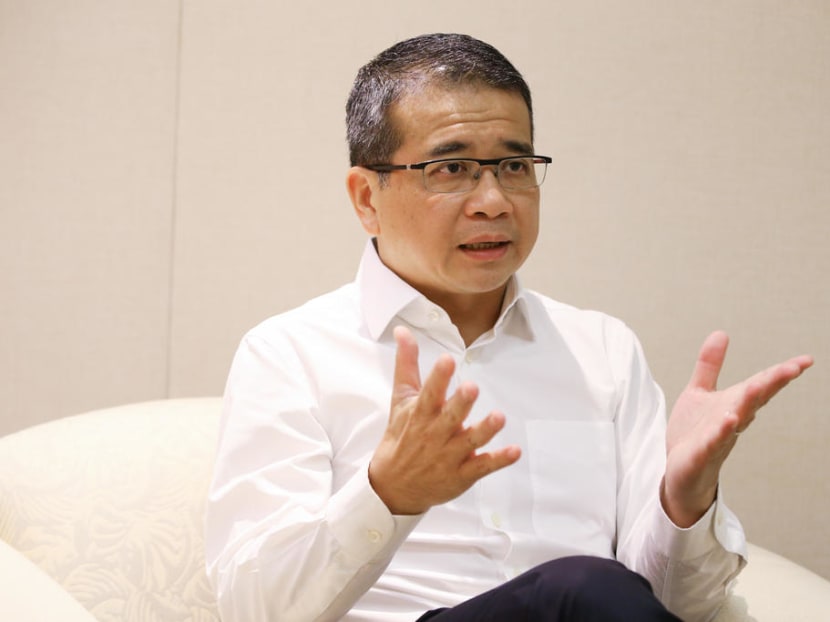Health Ministry to conduct ‘thorough review’ of informed consent taken by doctors
SINGAPORE — In a major move to ward off the costly practice of defensive medicine, the Ministry of Health (MOH) will do a thorough review of the taking of patients’ informed consent by doctors.
SINGAPORE — In a major move to ward off the costly practice of defensive medicine, the Ministry of Health (MOH) will do a thorough review of the taking of patients’ informed consent by doctors.
It will form a workgroup made up of 10 to 12 doctors, legal professionals and laypeople for the review, which is expected to be completed by the end of the year.
Making the announcement at a pledge affirmation ceremony for 350 new physicians on Saturday (March 2), Senior Minister of State for Health and Law Edwin Tong said the authorities will consult with doctors to understand their concerns and get their views.
“We will review the legal position, as well as the practical aspects of taking such consent – what it entails, the context with which it’s taken and what the standards are – with a view to providing appropriate guidance for doctors,” said Mr Tong.
This is the latest development in the wake of a recent controversial disciplinary tribunal ruling involving orthopaedic surgeon Lim Lian Arn. Dr Lim was fined the maximum S$100,000 for failing to inform a patient of the risks or complications that could arise from a steroid injection he was administering.
The penalty triggered an outcry among the medical community, and doctors called on the MOH to clarify its stand on the need for doctors to obtain “informed consent” from patients for minor procedures.
Last month, the MOH tasked the Singapore Medical Council (SMC) to apply to the court to review a fine imposed on Dr Lim “and for the appropriate revisions to be made”. It was the first time the MOH asked the SMC — which regulates doctors here — to review a disciplinary tribunal’s decision.
WHY THE WORKGROUP, AND WHAT IT WILL DO
In a statement on Saturday, the MOH said it is concerned that the lack of clarity on appropriate informed consent will lead to defensive medicine. The latter refers to the ordering of tests or treatments that may not be in the best interests of the patients, but that serve to protect doctors from complaints or lawsuits.
“If we are not clear on what comprises informed consent, or become worried about what that standard might be, and as a result start advising the patient of every little detail, relevant or irrelevant, this would lead ultimately to the practice of defensive medicine,” said Mr Tong.
“This is neither in the interest of doctor nor patient. It would only increase the costs of healthcare and also compromise patient choice and safety. That is not what we want to see.”
He said that patients’ safety would not be compromised as a result of the review. “This is not about going soft on or compromising on patient safety. Acting in the patient’s best interests is non-negotiable and remains paramount.”
The workgroup will make recommendations on the taking of informed consent, as well as the SMC’s disciplinary and regulatory process.
Members of the workgroup will be announced at a later date.
But the MOH has sought the support of the Singapore Medical Association, the Academy of Medicine, Singapore and the College of Family Physicians Singapore to form the workgroup for the review. The three bodies represent nearly all doctors here.
The workgroup’s review will go beyond the scope of the Sentencing Guidelines Committee set up by the SMC earlier this year to ensure that disciplinary sentences for doctors are fair and consistent. The 16-member committee is made up of SMC members and lawyers.
HOW DOCTORS REACTED
Doctors welcomed greater clarity on informed consent and said it would especially benefit doctors who are more junior.
Singapore Medical Association vice-president Wong Tien Hua said that he hoped the review would provide a clear definition of informed consent.
“It’s not very clear cut, and I hope more clarity can be brought about with this workgroup because it is making life very difficult for doctors practising on the ground, especially junior doctors,” said Dr Wong.
Younger doctors do most of the minor procedures and, given the volume of procedures they perform, do not have the time to explain all the risks associated with each procedure to patients, he said.
President of the College of Family Physicians, Adjunct Assistant Professor Tan Tze Lee, said it has received a lot of feedback on the outcomes of disciplinary processes in recent months.
Welcoming the formation of the workgroup, he said: “There has been feedback that the young doctors are concerned about the lack of clarity.”
Sengkang Polyclinic doctor Ong Nam Kai, 33, said that he hoped doctors can be provided with specific information about their patients, so that they can inform patients about the risks that are particular to the patients. This is especially important in situations where doctors only have five minutes for a consultation, limiting the time available to explain all the risks involved in a procedure.
Better documentation of procedures will ensure “we don’t miss out anything that we need to convey to the patient”, said Dr Ong. “I would like specifics on the comorbidities of the patient, such as any medical problems that the patient has, because it varies between patients.”












